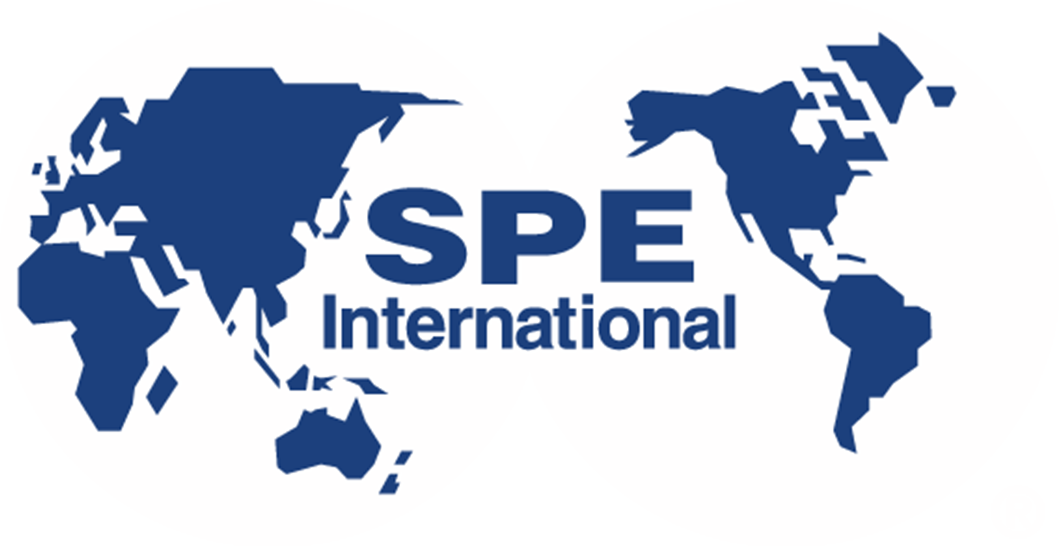Agenda
Please Note: All times are Coordinated Universal Time (UTC) +8
- All Dates
- Tuesday, October 26
- Wednesday, October 27
- Thursday, October 28
- Friday, October 29
- Saturday, October 30
- Sunday, October 31
- Monday, November 01
- Tuesday, November 02
- Wednesday, November 03
- Thursday, November 04
- Friday, November 05
- Saturday, November 06
- Sunday, November 07
- Monday, November 08
- Tuesday, November 09
- Wednesday, November 10
- Thursday, November 11
- Friday, November 12
- Saturday, November 13
- Sunday, November 14
- Monday, November 15
- Tuesday, November 16
- Wednesday, November 17
- Thursday, November 18
- Friday, November 19
- Saturday, November 20
- Sunday, November 21
- Monday, November 22
- Tuesday, November 23
- Wednesday, November 24
- Thursday, November 25
- Friday, November 26
- Saturday, November 27
- Sunday, November 28
- Monday, November 29
- Tuesday, November 30
- Wednesday, December 01
- Thursday, December 02
- Friday, December 03
- Saturday, December 04
- Sunday, December 05
- Monday, December 06
- Tuesday, December 07
Tuesday, October 26
Keynote Speaker(s):
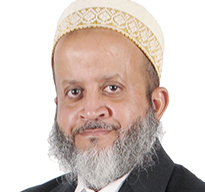
Anwar Husen Akbar Ali
Head, Petroleum Engineering Department
Centre of Excellence, Upstream
PETRONAS
Panel Speaker(s):
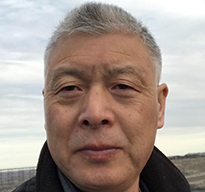
Dr Yanguang Yuan P.Eng
CEO and Geomechanic Advisor
BitCan Geoscience & Engineering Canada
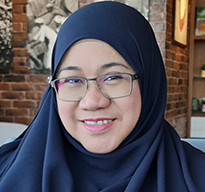
Norliny Talib
Senior Production Technologist and SME
Brunei Shell Petroleum
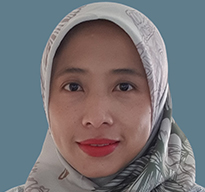
Iswahyuni Fifthana-Hayati
Development and Planning Manager
PT PERTAMINA Hulu Mahakam

Dr Ardian Nengkoda
Petroleum Engineer Lead (SME) Production & Facilities Development
Saudi Aramco
In this panel session, we will discuss the benefits and drawbacks of historical company-standard sand control concepts and sand management techniques. We will reveal how in various companies, standards have evolved with time and whether this evolution was driven by failures, changing requirements, lessons learnt, industry trends, technical innovations or just the flavour of the day. As we share each company’s journey, we will deliberate whether the evolution of the company standard gave rise to a consistent upward trend of success and increasingly positive economic outcome, or if it was marred by occasional train wrecks. We encourage progressive discussion on key tenets of delivering a successful company standard for sand control and management: contributors, key elements, and adoption by all stakeholders.
This session encompasses novel technologies and solutions application for subsurface and surface sand management. The primary aim is to encourage discussions on past failure experiences in order to accommodate the current and future sand management needs.
The application for subsurface technologies includes novel areas that are not limited to downhole solids control applications and management. Whilst the surface sand management focuses on technologies and methodologies that monitor sand production, risk of erosion, and holistic strategies for sand handling. Technological approaches using real-time monitoring, digital adoption, data analytics in preventing Loss of Primary Containment (LOPC), and other potential unplanned deferments will be covered in this session.
Discussion Leaders:
- Novel Intrusive Acoustic Probe to Monitor Particulate Rate and Particle Size Distributions During Flowback, Lily Jiang, Baker Hughes
- The Future of Solids Management is Now, Anders Arefjord, FourPhase
- Application of Simulation Software as a Tool for Gravel Packing Placement Prediction and Post Job Analysis on OHGP Completion, Oktaf Priatna, Halliburton
- Novel Acoustic Tool Reliably Separates Sand Impact Noise From Fluid Flow Noise To Add A “Solid Phase” To Production Logging, Duncan Troup, Archer
- [ePoster] Sand Consolidation Technology as Alternative Sand Control Method and Case Study Covering Success and Failure Experience, Tze Kwang Wong, Halliburton
- [ePoster] Successful Application of Dynamic Imaging Technology to Determine Desander and De-silter Efficiency, Jasvinder Singh, SMS Sand Management Services Sdn Bhd
Wednesday, October 27
This session focuses on the selection of optimum sand control concept during planning and execution phase of a field development through multi-disciplinary approaches and learnings from failures. Recent subsurface and surface technology advancements can be used to mitigate risks, generate value creation through robust well completion design, and integrate with optimum surface sand control/monitoring strategies to complement sand control requirements. Hence, multi-disciplinary integration between G&G, geomechanics, petrophysics, reservoir engineering, production technology, completions engineering, drilling, process and production operations are required to ensure the success of the holistic sand management throughout the field lifecycle. This, in turn, assures that productivity and value is maximised.
Discussion Leader:
- Sarawak Gas Geomechanics Study and Implementation of Oriented Perforation (Shallow Interval), Inba Malar Govindasamy, PTTEP Sarawak Oil Ltd
- Holistic Approach in Selecting the Best Sand Control & Completion Strategy For Brown Field Infill Project, Nagarajan Naupa, PETRONAS Carigali Sdn Bhd
- Tackling Sand Production in a Mature Giant Gas Field of Mahakam: A Holistic Approach from Sub-Surface to Surface at Tunu Field, Dadik Hendra Kusuma, PT PERTAMINA Hulu Mahakam
-
From Big to Small Fish: Transformation of Sand Consolidation Experience in Mahakam, Izzad Abidiy, PT PERTAMINA Hulu Mahakam
- [ePoster] Use of Geomechanical Sand Volume Quantification in Sand
Management Decision and Qualification of Standalone Screens, Abbas Khaksar, Baker Hughes - [ePoster] Limits of Laboratory Sand Screen Erosion Testing for Practical Applications, Lukas Ochmann, TU Bergakademie Freiberg
- [ePoster] Use of Sand Control Simulation Software to Enhance Filter Cake Breaker Fluid System Placement in an OHSAS/ OHGP Completion, Anandhadhasan Balasandran, Yeo Kim Teng, Halliburton
- [ePoster] Single Trip Resin Sand Consolidation with Multizone Frac-Pack - A Revolutionary Sand Control Technique in Malaysia, M Rizwan Rozlan, PETRONAS Carigali Sdn Bhd
The failures in sand control can range from minor and easily remedied issues to catastrophic events that can fail the well. Thus, it is imperative to investigate the failures to identify the root cause to be remedied and improved for future operations. This session will discuss lessons learnt from evaluation of failures during the design stage, execution, and installation of sand control completion, as well as the long-term well productivity issues. The improvement from failures of downhole and surface sand management is rooted in understanding both installation and performance, which can only be gained through detailed data analysis and evaluation.
Discussion Leader:
- Sand Control Strategy for Infill Development: Optimization vs Replication, Hajah Hazimah Bakar, Brunei Shell Petroleum
- Gravel Pack Learning and Well Performances in a Depleted Waterflood Reservoirs, Fadzlan Suhaimin, Brunei Shell Petroleum
- Sand Influx Post Thru-Tubing Perforations, Pravin Nair Venugopalan, PETRONAS Carigali Sdn Bhd
- Understanding Sand Control Installation Failures, Kesavan Govinathan, DuneFront
- [ePoster] Successful Field Implementation of a Novel Solids-Free, Low Viscosity System for Control Water-Based Fluid Losses during a Sand Control Completion in Southeast Asia, Ubonwan Madua, Halliburton
Thursday, October 28
This session focuses on solutions and retrofits that have been applied to remedy sand problems in late life assets. Mature assets are typically characterised by design limitations, technical integrity concerns, cash flow, and economic constraints. Case histories presented in this session should describe failure experiences, and where possible, explain the root cause of the issue. We encourage the industry to share solutions to prevent reoccurrence and increase reliability, where discussions may comprise solution selection, placement techniques, mechanical vs. chemicals solution, and innovative technologies.
Discussion Leader:
- Successes and Failures of Thru-Tubing Ceramic Sand Screen Application in Offshore East Malaysia, Catherine Tang Ye Lin, Petronas Carigali Sdn Bhd
-
Surface Sand Management – A DIGITAL Solution to this Undermined Strategy, Vinnavadi C Babu Sivakumar, Greenfield Oil & Trading Services
- Best Practices Implemented at Gas Field X to Minimize Deferment Due to Sand Production, Nur Afiqah Ayub, Petronas Carigali Sdn Bhd
- Laboratory Study Yields New Design Features to Improve the Erosion Resistance of Thru Tubing Screens, Chris Malbrel, TPM (Tubular Manufacturing Perforating)
Challenging offshore environments are usually associated with the following:
- Subsea
- Deepwater turbidites
- HPHT and high CO₂ and H₂S
- Technologically Enhanced Naturally Occurring Radioactive Material (TENORM)
- Mercury
- Organic and inorganic scales
- Multi-stacked or highly compartmentalised reservoirs
- Overpressure, depleted, thin beds
- Very fine sand or heavy oil
Well architecture in such environments can be complex, and may comprise very long horizontal wells, multilaterals and fish hook wells, multizone completions with inflow control technology, and downhole pumps. Sand control is often required in these wells and the decisions are made upfront rather than later. This session will address the following questions:
- Is this always the best strategy?
- What does it take to select and successfully install the best sand control in challenging environments?
- How do we ensure short- and long-term performance can be sustained?
- Is subsea and deepwater sand control and management really different from shallow water, or onshore?
What we learnt from past failures can address these challenges through sharing of case studies, lessons learnt, best practices, and application of technology advances in the industry.
Discussion Leader:
- Sand Control Remediations in Fish Hook Wells, Siti Bazlina Mohidin, Brunei Shell Petroleum
- Application of Hydrophobically Modified Water-Soluble Polymer (HMWSP) in Cased Hole Sand Control Treatments, Mohd Hisyam Rosdi, Halliburton
- Progressing Sanding Evaluation Capturing Lessons Learned at Different Field Life Stages: Example from an Australian Gas Field with Long Horizontal Wells and High Depletions, Ahmadreza Younessi, Baker Hughes
- Open Hole Gravel Packing in an Ultra-Low Fracture Pressures: Case Histories and Lessons Learned From The Offshore Brunei Shallow Field, Ankur Singh, Brunei Shell Petroleum
- [ePoster] First Marginal Deepwater Field Development – Maximizing Learnings and Possibility of Success (PoS) for Downhole Sand Control, Colinus Lajim @ Sayung, PETRONAS Carigali Sdn Bhd
Thursday, November 11
This short course on “Geomechanics for Sanding Evaluation” is designed to provide geoscientists and engineers with the basics of petroleum rock mechanics and the use of well logs, core measurements, drilling, and production information for geomechanical modelling with a particular focus on the application of reservoir geomechanics in sand production prediction and sand management decisions.
Learn more about this training course ►
Cost:
SPE Member
Super Early Bird: USD 300
Early Bird: USD 350
Standard: USD 400
Nonmember
Super Early Bird: USD 400
Early Bird: USD 450
Standard: USD 500
Register Now ►
Monday, December 06
Part 1: 6 – 7 Dec 2021 | Part 2: 14 – 17 Feb 2022 | Part 3: 4 – 7 Apr 2022
This training course is presented to you in a series consisting of three parts. Throughout the series, we will discuss sand control considerations involved in drilling and completing a well, including the various sand control techniques available for cased and open hole completions.
Learn more about this training course ►
Cost:
SPE Member
Super Early Bird: USD 1300
Early Bird: USD 1550
Standard: USD 1800
Nonmember
Super Early Bird: USD 1800
Early Bird: USD 2050
Standard: USD 2300
